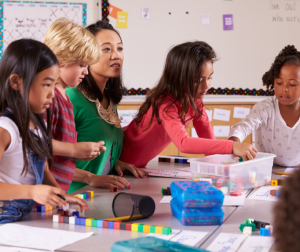
When is the right time for my child to go back to school? It’s a choice that every parent is going to have to make sometime. Children rely on us to make the best choices for them and that’s not easy when we don’t know ourselves. And if parents and teachers are finding it hard to make sense of government proposals, imagine what our children are thinking:
“Is it safe to go back to school?”
“Will my friends be there?”
“Will I have the same teacher?”
“What about the year 6 leavers party? When will I say goodbye to everyone?”
“I haven’t done the work that school sent home, will I be told off?”
Our children are going to need a lot of reassurance.
What’s the right decision?
It’s going to be different for every family. Some children will return as soon as possible; the right choice for them. Others may delay and that is an equally valid choice for their families. We’ve never had to deal with this before, so there is no model to follow, no right answers. For myself, as a parent, a primary school worker and a Rites For Girls facilitator, I am aware of the pros and cons of returning on 1st June.
One thing is certain, all schools will eventually open to all their pupils! Some people will be expecting this step to be like returning after a very long summer holiday: many parents heaving a sigh of relief, children feeling a mixture of excitement and anxiety and teachers re-energised. However, going back after the lockdown will be different for everyone; and school will not be the same.
Our routines have changed. We will need a period of adjustment and time to reconnect with the pattern and pace of school life. Just think of a typical school morning— the planning and energy required to get everybody mobilised, fed, washed, dressed, in class on time with packed lunch, sports kit and books for the day. It’s exhausting just thinking about it! When the school bells ring again, the ‘old’ routine may no longer work, expect some bumps in the road and be flexible.
The world has changed with Covid-19 and for our children some of the biggest changes will be to their schools and teaching. At my school, like others all over the country, we are working with government guidelines to create a safe learning environment. It is necessary; but frustrating because the restrictions stop us from being able to give the children some of what they most need. Collaboration and play are such integral parts of primary school life, but difficult to recreate with social distancing and no shared toys or equipment. Class sizes will be smaller, breaktimes staggered, desks spaced out and no opportunities to gather as a group exceeding 15 children. We are introducing one way systems for moving around the school to limit social contact. Safety comes first always in our school, but we never imagined dealing with a world pandemic. It all feels very odd and uncomfortable.
For weeks children have been told to stay away from people. So naturally some will feel frightened about traveling to school and being in public spaces again. Many will experience separation anxiety, a normal, healthy response to leaving the protected family home. They may be concerned about family members going back to work. Be patient and keep offering reassurances that you are taking care of yourself. We expect some children to be upset when they come back to school; we will look after them.
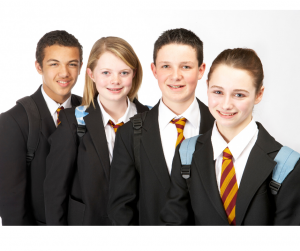
My school has been open every day for key worker families, including Easter holidays and half term. There is a community of children who have already experienced a modified setting. We have called it our ‘Rainbow School’, adopting the symbol of hope throughout this crisis. Teachers have been working to provide home learning and teaching at the Rainbow School. As a community, we have also been worried, experienced health issues, suffered hardship, missed loved ones and experienced bereavement.
Return to school will be phased. We have greatly missed our amazing children and look forward to seeing them. Our main focus will be welcoming them back, helping them to settle and feel safe in the adapted environment. We will not be giving parents academic reports in the first week, but we will be delighted to see our pupils offering them kindness and support. Which has a greater value?
Much of learning is based on practice; teachers recognise that most children will be out of practice. Learning at home is not the same as learning at school – and nor should it be. Children will have engaged in different learning experiences. Don’t worry if your child has not mastered Mandarin, built a medieval fort out of matchsticks or written a novel. It’s not a competition! The most important thing is that your child has been kept safe and well.
When children leave their home cocoons, their five senses will be overloaded. Journeying to school and being in class will be quite a novelty. Even with smaller class sizes, it will be full of activity and sensory stimulation. Trust teachers to set the correct pace and expect exhausted children at the end of each day! However tempting, try not over schedule as lockdown eases. Everybody will be excited to meet with missed friends, family and enjoy much loved pursuits, but try a gentle approach. All of us will know when we are ready for more, not just the youngsters.
We also have in mind that our community has lost members to the coronavirus. Sadly, when schools return there will be many bereaved families. We know the importance of acknowledging this and taking time to mark and celebrate the lives of people who have died. Let’s all find age-appropriate ways of talking openly and answering children’s questions about death. It is a vital that we discuss this truthfully and appropriately or children will build up thoughts that will be neither helpful nor healthy.
Importantly, no parent is alone in managing the return to school. Staff are aware of the many different experiences, financial hardships and personal difficulties that families may have endured since children were last in the classroom. Many challenges are ongoing; our school team is prepared and willing to provide support for children and families. This health crisis has highlighted, more than ever, that the role of a school in a community is so much more than a place of education.
In addition to the rich resources available through our schools, Rites for Girls continues to offer support to girls and their parents. We specialise in helping year 6 girls make the transition from primary to secondary school and we will be writing more soon on how you can help make up for some of what your daughter will be missing this year. I facilitate Girls Journeying Together for small groups of preteen girls, offering monthly support as they practice being true to themselves, learn about puberty, share their hopes and fears, and help each other into their teens. In our Girls Journeying Together groups this year we’ll be giving girls the opportunity to help each other make sense of our recent experiences.
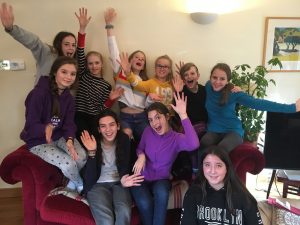

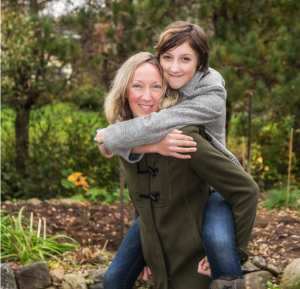
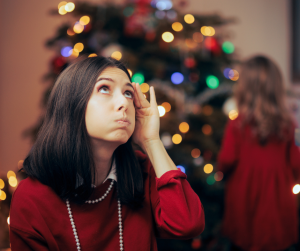
No comment yet, add your voice below!